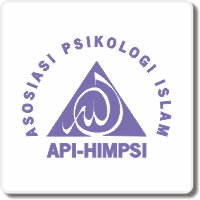A Descriptive Study of Digital Stress among Employees Who Adopt a Hybrid Working System at PT.XYZ
DOI:
https://doi.org/10.32923/psc.v4i2.2704Keywords:
Digital stress, hybrid working, information and communication technology (ICT), stressorAbstract
One consequence of pandemic COVID-19 was that most companies implemented a hybrid working system (a mixture of work from home and office). During this period, employees at PT. XYZ who adopted the hybrid working system, experienced stress that caused by the usage of massive information and communication technology, that resulted in psychological detrimental effects. The objective of this study was to investigate the level and the types of digital stresses that faced by those employees. This research took place in March 2022, used a quantitative, online survey-based questionnaire named Digital Stressors Scale (α = 0.865) consisted of 50 questions with seven-points Likert Scale and convenient sampling technique, involving 107 employees of PT. XYZ as the participants. Data were then analyzed using descriptive statistics with the help of SPSS software. Result suggested that overall employees faced a high level of digital stress and the highest mean among the 10 dimensions of digital stress was invasion (M = 4.18, SD = 1.47 - stress about the tendency harming their individual personal data). The result is expected to help the management to think of various solutions to curb the problems as to improve the well-being of the employees working at PT. XYZ.
Downloads
Published
Issue
Section
License
Copyright Notice
The Psychosophia: Journal of Psychology, Religion, and Humanity is under the Creative Commons Attribution 4.0 International (CC-BY 4.0) License, according to which:
1) Authors retain copyright and grant the journal the right to first publication, with the work simultaneously licensed under the Creative Commons Attribution (CC-BY 4.0) that allows the sharing of articles published with the acknowledgment of authorship and the initial publication in this journal.
2) The authors are authorized to make additional contracts separately for distribution of the version of the work published in this journal (for example, publication in an institutional repository or as a chapter of the book), as long as there is recognition of authorship and initial publication in this journal.
3) Authors are authorized and encouraged to publish and distribute their work online (for example, in institutional repositories or on their personal pages) at any time before or during the editorial process, as it increases the impact and reference of the published work.






